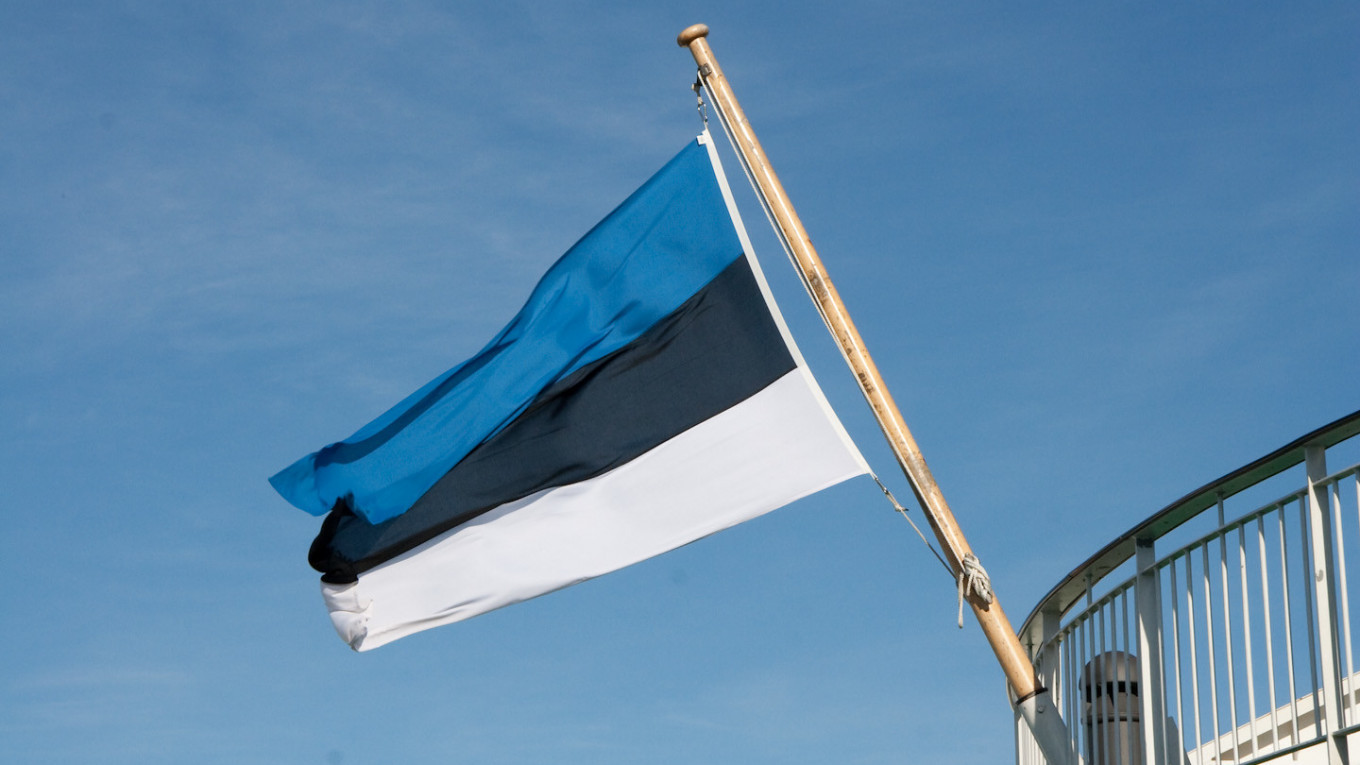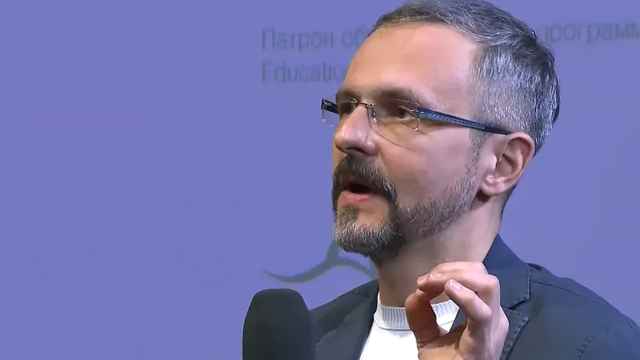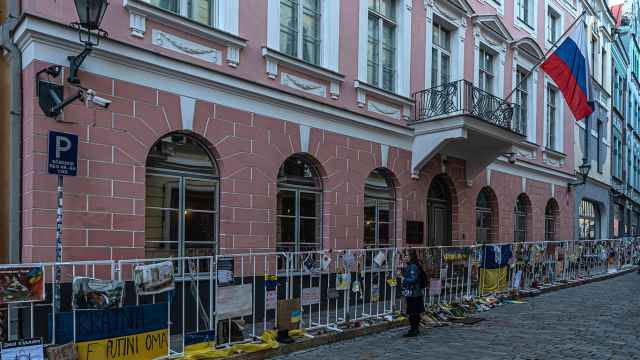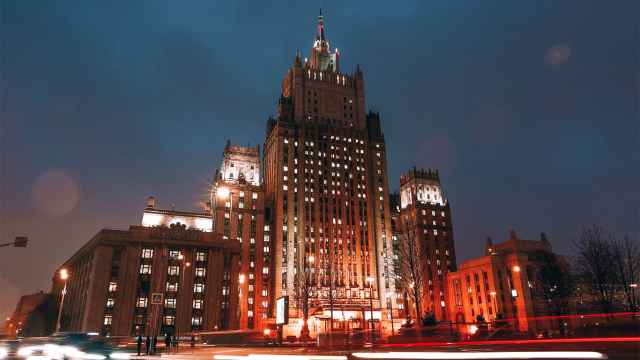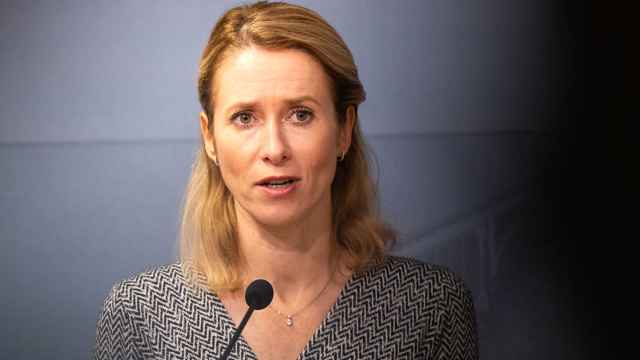Estonian lawmakers voted Wednesday to ban the country's large Russian minority and other non-EU residents from voting in local elections, as the Baltic state warily eyes Moscow.
The amendment was proposed in response to security concerns over Russia's war in Ukraine. Estonia has been a steadfast supporter of Kyiv since the invasion in February 2022.
In the vote on Wednesday, 93 lawmakers in the 101-seat chamber backed a constitutional amendment to impose the restrictions, a result that was met with applause from MPs.
Estonian Prime Minister Kristen Michal hailed the outcome as "a victory for all", adding on X: "The decisions in our local life won't be made by the citizens of the aggressor states, but we'll decide by ourselves."
Nearly 80,000 Russian citizens hold a residence permit in the former Soviet republic of 1.3 million people, which regained its independence in 1991.
There are also nearly 60,000 people left stateless after the fall of the Soviet Union.
The restrictions, if signed into law by Estonia's president, would ban non-EU citizens from voting and allow the stateless residents to go to polls one last time in local elections in October.
"If Russia had been, from our point of view, sensible, no one would have initiated this," said Rein Toomla, a political expert from the Johan Skytte Institute.
"It's very clearly against Russia and... Russian citizens living in Estonia have fallen victim to this because Russia has acted this way, not them," he told AFP.
Permanent residents of Estonia currently have a constitutional right to vote in local elections, but not general elections.
'Imperialistic ambitions'
Relations between Moscow and the Baltic states of Estonia, Latvia and Lithuania have soured over the years.
Both Estonia and Latvia have sizeable Russian-speaking minorities that are sometimes at odds with the national governments.
There have been concerns that Moscow could seek to exploit these differences to destabilize the countries, which are both EU and NATO members.
Citing the threat from Russia, Estonia plans to raise defense spending next year to at least 5% of GDP.
"Russia has not changed its goals and imperialistic ambitions. This is a real threat to both Europe and NATO," Michal said last week.
He had already told public broadcaster ERR in January that "If a person wants to be a citizen of Russia... they shouldn't expect to be part of the discussion about Estonia."
Voting rights are just the latest symbolic act of cutting ties with Russia.
The Baltic states began removing and demolishing some of their Soviet-era war memorials in response to Russia's Ukraine invasion.
This prompted outrage in Moscow, which declared former Estonian leader Kaja Kallas — now the EU foreign policy chief — and several other European officials as "wanted" over their alleged involvement in the destruction of the memorials.
Security threat
Estonia's 101 lawmakers examined two slightly different versions of the voting amendment.
One was to ban third-country nationals — who are neither citizens of the European Union nor the visa-free Schengen travel zone — and stateless individuals from voting in local elections, including the ones in October.
The other proposal was to allow stateless individuals to vote one last time in the coming election, but third-country nationals would be banned.
The prime minister backed the less restrictive version, as did a larger number of MPs.
Supporters say it would give stateless individuals enough time to apply for Estonian citizenship.
When Estonia gained independence from the Soviet Union, around a third of the people living on its territory were from Russian-speaking minorities whose families had immigrated from other Soviet republics.
They did not qualify for citizenship because of a lack of blood ties to Estonia. Citizenship also requires applicants to pass an Estonian language test.
A Message from The Moscow Times:
Dear readers,
We are facing unprecedented challenges. Russia's Prosecutor General's Office has designated The Moscow Times as an "undesirable" organization, criminalizing our work and putting our staff at risk of prosecution. This follows our earlier unjust labeling as a "foreign agent."
These actions are direct attempts to silence independent journalism in Russia. The authorities claim our work "discredits the decisions of the Russian leadership." We see things differently: we strive to provide accurate, unbiased reporting on Russia.
We, the journalists of The Moscow Times, refuse to be silenced. But to continue our work, we need your help.
Your support, no matter how small, makes a world of difference. If you can, please support us monthly starting from just $2. It's quick to set up, and every contribution makes a significant impact.
By supporting The Moscow Times, you're defending open, independent journalism in the face of repression. Thank you for standing with us.
Remind me later.


